Eco-Friendly Soft Washing: The Better Green Way to Clean in 2024
Eco-Friendly Soft Washing: The Better Green Way to Clean in 2024
Introduction
Are you tired of harsh chemicals damaging your property and harming the environment? You're not alone! In fact, a recent study found that 78% of homeowners are actively seeking greener cleaning solutions. Enter eco-friendly soft washing – the game-changing technique that's revolutionizing how we clean our homes and businesses. In this article, we'll dive into the world of green cleaning and show you why eco-friendly soft washing is the smart choice for 2024 and beyond. Get ready to transform your cleaning routine and make a positive impact on the planet!
Key Takeaways: Eco-Friendly Soft Washing
- Versatile Cleaning Method: Eco-friendly soft washing is effective for both residential and commercial properties, including siding, roofs, decks, storefronts, and parking lots.
- Gentle Yet Powerful: Despite using low pressure, soft washing can tackle tough stains and grime without damaging surfaces.
- Environmental Benefits: Uses biodegradable solutions and less water than traditional pressure washing, reducing environmental impact.
- Safe for Delicate Surfaces: Ideal for cleaning historic buildings, intricate stonework, and other sensitive materials that might be damaged by high-pressure methods.
- Long-Lasting Results: Soft washing not only cleans but also helps prevent future growth of algae, mold, and mildew, leading to longer-lasting cleanliness.
- Cost-Effective: While initial costs might be slightly higher, soft washing can save money in the long run by preventing damage and extending the life of surfaces.
- Improves Property Appearance: Can dramatically improve the look of a property, sometimes making old surfaces appear new again.
- Plant and Pet Friendly: When done correctly, eco-friendly soft washing is safe for surrounding vegetation and animals.
- Versatile Applications: Effective on a wide range of surfaces including vinyl siding, brick, concrete, wood, and more.
- Preserves Paint and Finishes: Unlike harsh cleaning methods, soft washing doesn't strip paint or damage finishes, helping to maintain your property's look.
- Professional Expertise Matters: While DIY is possible, professional soft washing services have the right equipment and knowledge to ensure the best and safest results.
- Year-Round Maintenance: Depending on your climate, annual or bi-annual soft washing can keep your property looking great all year round.
Remember, eco-friendly soft washing isn't just about cleaning – it's about maintaining your property responsibly while protecting our environment. It's a smart choice for property owners who want effective cleaning without the harsh environmental impact of traditional methods.
What is Eco-Friendly Soft Washing?
Alright, let me tell you about eco-friendly softwashing. I've been cleaning for years, and this method is a game-changer!
So, what exactly is soft washing? It's like giving your house a gentle bath instead of a power shower. The process involves applying a biodegradable cleaning solution to the surface, letting it sit for a short time to break down the dirt and grime, and then rinsing it off with low-pressure water. I remember the first time I tried it in my place – I was skeptical. How could something “soft” actually get rid of all that grime?
But boy, was I in for a surprise! Soft washing uses low-pressure water and specialized cleaning solutions to break down dirt, algae, and other gunk. It's like magic, I swear. The best part? It doesn't damage your surfaces like traditional pressure washing can.
I'd like to tell you about when I almost blew a hole in my siding with a pressure washer. Yeah, not my proudest moment. I was trying to clean my house, and more pressure equals cleaner, right? Wrong! The high pressure from the washer can actually damage your surfaces, and in my case, it leads to a small hole and a bruised ego. That's when I knew there had to be a better way.
Enter eco-friendly soft washing. This method is gentler than your grandma's touch, I kid you not. It uses biodegradable cleaning agents that are tough on dirt but easy on the environment. We're talking about solutions that break down naturally, so you don't have to worry about harming your plants or contaminating the groundwater.
Now, I know what you're thinking – ‘But does it work?' Trust me, I had the same doubts. But after using it on countless properties (including my own), I can confidently say it's just as effective as traditional methods, if not more so. You can trust in its cleaning power.
The critical components of these eco-friendly solutions usually include things like:
- Biodegradable surfactants (fancy word for soap, basically)
- Natural enzymes that eat away at organic matter
- Hydrogen peroxide for disinfecting
And get this – some solutions even use citrus extracts! Your house can smell like a fresh orange while getting squeaky clean. How cool is that?
But here's the real kicker – the benefits are out of this world. For property owners, you're looking at:
- Longer-lasting results (I'm talking months, not weeks)
- Less damage to your surfaces
- Lower water bills (yep, it uses less water than pressure washing)
And for the environment? Oh man, where do I start? By choosing eco-friendly soft washing, you're taking a stand against chemical runoff, conserving water, and not contributing to the ‘let's pump harsh chemicals into the ground' problem. It's a win-win and a powerful contribution to environmental conservation!
I remember a client who was worried about her prized rose bushes. She'd had a bad experience with a pressure-washing company that decimated her garden. I assured her that our eco-friendly soft washing wouldn't harm a single petal. The relief and peace of mind she felt when she saw her sparkling clean house surrounded by perfectly intact flowers? It was priceless.
Look, I'm not saying eco-friendly soft washing is perfect. Sometimes, you might need a little extra elbow grease for adamant stains. But in my experience, it's the best solution for keeping your property clean without feeling guilty about harming Mother Nature.
So, next time you look at your grimy siding or moss-covered roof, try eco-friendly soft washing. Your house (and the planet) will thank you. Trust me, I've seen the results firsthand, and they're pretty darn impressive.
The Science Behind Green Cleaning Agents
Alright, folks, let's dive into the nitty-gritty of green cleaning agents. I've been knee-deep in this stuff for years, and let me tell you, it's pretty fascinating once you get past all the sciencey jargon!
First up, let's talk about biodegradable surfactants. These soap-like compounds, such as [specific examples], do the heavy lifting in our eco-friendly cleaners. The cool thing is they break down naturally over time. I remember using a harsh chemical cleaner on my deck once; months later, nothing would grow in that spot. Talk about a wake-up call! With biodegradable surfactants, you don't have to worry about that. They do their job and then peacefully return to nature.
Now, onto natural enzymes – these little guys are like nature's own cleaning crew. Proteins speed up chemical reactions, breaking down tough stains and grime. Initially, I was skeptical, thinking, “How can something natural be as effective as bleach?” But I was sold after seeing enzymes tackle a red wine stain on my carpet (don't ask). These enzymes are specific, too – some target protein stains and others go after fats and oils. It's like having a team of tiny, specialized cleaners working for you!
Let's chat about pH-neutral formulations. This was a game-changer for me. See, many traditional cleaners are either super acidic or alkaline. They might clean well, but they can also damage surfaces over time. I learned this the hard way when I ruined the finish on my grandma's antique table. Oops! pH-neutral cleaners are like the Goldilocks of cleaning solutions-not too acidic, not too alkaline, just right. They're gentler and safer for most surfaces. They're especially great for natural stone, hardwood floors, and other delicate materials.
Here's where it gets exciting – comparing eco-friendly cleaners to harsh chemical ones. I used to think that if it didn't smell like it could strip paint, it wasn't cleaning properly. Boy, was I wrong! Eco-friendly cleaners might not have that eye-watering scent, but they can be just as effective, if not more so.
Here's a quick rundown based on my experience:
- Safety: Eco-friendly cleaners win hands down—no need for gloves or to worry about fumes.
- Effectiveness: It's a tie. Green cleaners might need more elbow grease for tough jobs, but they get there.
- Long-term impact: Eco-friendly all the way. No residue build-up or damage to surfaces.
- Smell: Green cleaners smell way better. No more ‘Eau de chemistry lab' in your house!
I remember this one time I cleaned my bathroom with a harsh cleaner. My eyes were watering, I was coughing, and I thought, “This can't be good for me.” The next day, I switched to a green cleaner and never looked back. My bathroom's just as clean, and I can breathe easily!
One thing to keep in mind is that not all green cleaners are created equal. Some companies try to greenwash their products, which means they slap ‘natural' on the label when they're anything but. It took me a while to figure out how to spot the real deal. Look for certifications from reputable organizations, and don't hesitate to ask questions! For instance, [specific examples of certifications] are good indicators of a genuine eco-friendly product.
The science behind green cleaning agents is all about working with nature, not against it. It's about understanding that we don't need to nuke our dirt to oblivion—we just need to give nature a little boost to do what it does best.
So next time you reach for a cleaner, consider what's inside that bottle. Your home, your health, and our planet will thank you. And hey, you might even find yourself geeking out over enzymes like I do now. Who knew cleaning could be so fascinating?
Applications of Eco-Friendly Soft Washing
Oh boy, let me tell you about the applications of eco-friendly softwashing! I've been in this game for years and am still amazed at how versatile this method is.
Let's start with residential uses. I remember when I first tried soft washing in my own house. I was skeptical. My siding was looking pretty rough—all grimy and covered in those green algae streaks. But after a gentle, soft wash, it looked brand spanking new! I swear, my neighbors thought I'd replaced the siding entirely.
Roofs are another big one for homes. You know those ugly black streaks that make your roof look ancient? That's algae; soft washing zaps it immediately without damaging the shingles. I once had a client who was about to replace her entire roof because it looked so bad. We soft-washed it instead, and she saved thousands of dollars. The look on her face was priceless!
And don't even get me started on decks. I used to dread deck cleaning because pressure washing always leaves those ugly streaks and sometimes even damages the wood. Soft washing? It cleans evenly and helps protect the wood. Win-win!
Now, let's talk about commercial applications. This is where things get interesting. I once worked on this old storefront that had not been cleaned in years. The owner was skeptical about soft washing, thinking we'd need something more heavy-duty. But after we were done, he couldn't stop grinning. The bricks looked almost new, and we didn't damage a single mortar.
Parking lots are another beast entirely. You'd think you'd need a ton of pressure to clean all that oil and grime, right? Nope! The eco-friendly solutions we use, such as biodegradable detergents and low-pressure water, break down that stuff like it's nothing. And the best part? No more worrying about water runoff carrying nasty chemicals into storm drains.
But here's where soft washing impressed me – delicate surfaces. I once had a client with a beautiful, historic home covered in intricate stonework. They were terrified of cleaning it, afraid we'd damage the details. We used a super gentle soft wash, specifically designed for delicate surfaces, and it was like watching years of grime melt away. The detail that emerged was stunning!
I have to share this one story: This apartment complex had gorgeous, old wooden balconies. The property manager was at wit's end because traditional cleaning methods destroyed the wood. We came in with our eco-friendly soft wash, and not only did it clean them up beautifully, but it also helped condition the wood. Talk about a happy client!
I know what you're thinking: “Sounds great, but does it work on tough stains?” Let me tell you, I've seen this stuff tackle some pretty gnarly situations. There was this one time we were called to clean a restaurant patio. Years of food spills, bird droppings, you name it. I was a bit nervous, to be honest. But our eco-friendly solution cuts through it like a hot knife through butter. The relief and satisfaction on the client's face when they see the results is priceless.
The before and after results? They're nothing short of miraculous. I've had clients gasp when they see the difference. Once, we cleaned half of a driveway to show the contrast, and the homeowner thought we'd somehow replaced that half with new concrete! The sheer surprise and delight on their faces is what makes this job so rewarding.
But here's the real kicker—all this cleaning power comes without harming the environment. No harsh chemicals seep into the ground, no excessive water waste, and no damage to surrounding plants. I've had clients tell me their gardens have never looked better after we've cleaned nearby surfaces.
So eco-friendly soft washing has you covered, whether it's your home's siding, your business's storefront, or even delicate historical structures. The transformation is truly remarkable. It's practical, safe, and kind to our planet. In my book, that's a triple threat that can't be beaten! The amazement and satisfaction on the client's face when they see their property looking brand new is what makes this job so rewarding.
Remember, though, not all soft washing services are created equal. Ensure you're working with someone who knows their stuff and uses eco-friendly solutions. Trust me, your property (and the environment) will thank you!
Environmental Impact and Sustainability
Let me tell you when I first got into the cleaning business; I had yet to learn about the environmental impact of what I was doing. I was spraying away, using gallons of water mixed with who-knows-what chemicals. Boy, was I in for a wake-up call!
It all started when I noticed the brown patches in my client's lawn after a big pressure washing job. I felt terrible! That's when I started researching eco-friendly methods, and let me tell you, they've been a game-changer.
First, let's talk about water usage. You wouldn't believe the difference! With traditional pressure washing, I used to use water like it was going out of style. I'm talking hundreds, sometimes thousands of gallons, for a single job. But with soft washing? We're cutting that down by up to 80%!
I remember this one job where the client was super eco-conscious. She was timing how long we had the hose running, looking all worried. By the end, she was over the moon about how little water we'd used. Her water bill that month was way lower than she expected!
Now, let's chat about runoff. That used to keep me up at night, I swear. All those chemicals were washing away into storm drains, heading straight for our rivers and lakes. With eco-friendly soft washing, that's a thing of the past. The solutions we use to break down naturally, so even if there is some runoff, it won't harm the environment.
At a lakeside property, the owner was initially hesitant to clean his house, fearing contamination of the lake. However, after understanding our eco-friendly methods, he was visibly relieved. After the job, we even spotted some fish swimming near the shore, a clear sign of a job well done and a happy client.
Speaking of wildlife, that's another huge plus. I can't tell you how often I've seen plants and animals suffer from harsh cleaning methods. This one time, I was using traditional cleaners, and I accidentally got some on a rosebush. The poor thing was toast within days. Now? I can clean right up next to delicate plants without worry.
It's not just plants that benefit from our eco-friendly approach. We've had clients with pets who were initially nervous about having their homes cleaned. One lady had a parrot that was sensitive to fumes. After we soft-washed her house, that bird didn't even ruffle a feather! It's a great feeling to do our job without worrying about harming any critters, and our clients can rest easy knowing their pets are safe.
But here's the real kicker – the long-term benefits. When you use harsh methods and chemicals, you might get things clean, but you're also causing damage. I've seen siding get pitted, wood splintered, and stonework crumble. It's like taking one step forward and two steps back. With eco-friendly soft washing, we're protecting surfaces while we clean them. It's gentler, so it doesn't cause wear and tear. Plus, some of the solutions we use have protective properties. I've got clients whose homes I've been cleaning for years, and their exteriors look better now than when I started!
With eco-friendly soft washing, we're protecting surfaces while we clean them. It's gentler, so it doesn't cause wear and tear. Plus, some of the solutions we use have protective properties. I've got clients whose homes I've been cleaning for years, and their exteriors look better now than when I started!
I worked on one historic building—a beautiful old brick facade. The caretakers were so worried about damaging it that they'd been putting off cleaning it for years. We came in with our eco-friendly methods, and not only did we get it sparkling clean, but we also helped seal and protect the brick. They were over the moon!
Now, I won't lie and say it's all perfect. Sometimes, we might need more product or do a second pass for adamant stains. But in my book, that's a small price to pay for keeping our environment safe.
Switching to eco-friendly soft washing is a no-brainer. We're saving water, protecting our ecosystems, and helping properties stay beautiful longer. It's a win-win-win situation!
So next time you're considering cleaning your property, consider Mother Nature, won't you? Trust me, she'll thank you for it – and so will your home!
Choosing an Eco-Friendly Soft Washing Service
Alright, folks, let's discuss choosing an eco-friendly softwashing service. As a homeowner, you're at the forefront of this decision, and I'm here to share some real-world wisdom to help you make the best choice!
First things first, certifications and qualifications. I'll be honest: when I started, I thought these were just fancy pieces of paper. Boy, was I wrong! They're super important. Look for certifications from organizations like the PWNA (Power Washers of North America) or UAMCC (United Association of Mobile Contract Cleaners). These folks don't just hand out certs like candy – you have to earn them.
I remember the one time I hired a “certified” cleaner for my own home. It turned out their certification was from some bogus online course. The result? Let's say my azaleas never quite recovered. Lesson learned: always verify certifications!
Now, I'd like to move on to the questions you should ask. Don't be shy – a good service provider will happily answer them. Here are some biggies:
- What eco-friendly products do you use?
- How do you dispose of wastewater?
- Can you explain your soft washing process?
- Do you have insurance? (Trust me, this is crucial!)
I once had a potential client grill me for almost an hour about our methods. At first, I was a bit defensive, but then I realized – this is great! It showed they cared about their property and the environment. We ended up having a fantastic working relationship.
Let's talk red flags. Oh boy, I've seen some doozies over the years. Watch out for:
- Companies that can't explain their eco-friendly practices
- Meager prices (if it seems too good to be true, it probably is)
- Lack of proper equipment (more on that in a sec)
- Reluctance to provide references
I had this neighbor who went with the cheapest option she could find. The guys showed up with a pressure washer and a bucket of what looked like dish soap. It didn't end well. Her siding was damaged, and her flower beds were a mess. Don't be like my neighbor!
Now, let's discuss the importance of proper training and equipment. This is huge, folks. Soft washing isn't just about having a fancy machine—it's about knowing how to use it right.
I'll always remember when I first started. I thought I could dilute some eco-friendly cleaner and spray it with a garden hose. Ha! Let's say the results were… underwhelming. It took proper training and investing in the right equipment before I could call myself a pro.
Good soft washing equipment includes things like:
- Low-pressure nozzles
- Proper mixing systems for solutions
- Safety gear (for the crew's protection and yours!)
- Specialized attachments for different surfaces
But it's not just about having the gear—it's knowing how to use it. A well-trained technician will know exactly what pressure to use on your delicate stucco versus your concrete driveway. They'll also understand the proper solution concentrations for different types of grime.
I once worked with a guy who claimed to be a soft-washing expert. It turned out he was just a regular pressure washer who turned down the PSI. He damaged a client's cedar siding to understand the nuances of soft washing different materials. That's why proper training is so crucial.
Here's a pro tip: ask potential services about their training programs. Do they offer ongoing education for their techs? Do they keep up with the latest eco-friendly innovations? A company that invests in its people is usually a company that'll do right by you.
Remember, choosing an eco-friendly softwashing service isn't just about cleaning your property – it's about doing it safely for your home, family, and planet. Be bold and ask questions, check credentials, and even request a demonstration if you need clarification. The potential benefits of an eco-friendly service, from a cleaner environment to a healthier home, are worth the effort.
In the end, a little due diligence upfront can save you a world of headaches (and potentially a lot of money) down the line. Trust me, your property—and Mother Nature—will thank you for it! By taking the time to research and ask the right questions, you're not just hiring a service, you're taking an active role in protecting your home and the environment.
DIY Eco-Friendly Soft Washing Tips
Alright, DIY enthusiasts, let's roll up our sleeves and dive into eco-friendly soft washing! When I first tried this at home, it was a bit of a disaster. But remember, we all learn from our mistakes, right? It's all part of the journey.
Let's start with homemade cleaning solutions. I'm not going to lie—my first attempt at this was dish soap and water. Spoiler alert: it didn't work great. But after some trial and error (and a few unintentional sudsy driveways), I've found some winners.
Here's a simple recipe that's worked wonders for me:
- 1 cup of white vinegar
- 1 cup of oxygen bleach (not chlorine!)
- one tablespoon of eco-friendly dish soap
- 1 gallon of water
Mix it all up, and voila! You've got yourself a pretty effective cleaner. Remember, always test on a small, inconspicuous area first. I learned that the hard way when I accidentally discolored a siding patch. Oops!
Now, let's talk equipment. You don't need anything fancy, but there are a few essentials:
- A pump sprayer (trust me, your arm will thank you)
- Soft bristle brushes (different sizes for different areas)
- A low-pressure nozzle for your garden hose
- Safety gear (goggles, gloves, the works)
I once tried using an old spray bottle instead of a pump sprayer. Let's say it took me about three hours to do what should've been a 30-minute job. Learn from my mistakes, folks!
Okay, here's a quick step-by-step for cleaning different surfaces:
- Siding:
- Wet the area with plain water
- Apply your solution with the pump sprayer
- Let it sit for about 10 minutes (don't let it dry!)
- Gently scrub with a soft brush if needed
- Rinse thoroughly from top to bottom
- Decks:
- Clear the deck (I once forgot to move a planter and ended up with a perfect circle of grime – not my finest moment)
- Apply solution and let it sit for 15 minutes
- Scrub with a deck brush
- Rinse well, making sure to get between the boards
- Driveways:
- Sweep first (seriously, it makes a huge difference)
- Apply solution generously
- Let it sit for 20 minutes
- Scrub tough spots with a stiff brush
- Rinse, working from the highest point down
Now, let's talk safety. I can't stress this enough—protect yourself! I once got some solution in my eye while looking up at the siding I was cleaning. It was not fun. Always wear goggles, gloves, and clothes you don't mind getting dirty. Your safety is the top priority.
Once you're done, remember to dispose of any leftover solution in a responsible manner, following local regulations for chemical disposal.
- Don't softwash in direct sunlight. The solution can dry too quickly and leave a residue.
- Keep pets and kids away from the area until it's scorched and rinsed.
- Never mix cleaning products. I did this once and nearly gassed myself out of the garage. Stick to one solution at a time!
- If cleaning anything high up, use a sturdy ladder and have someone spot you. No clean siding is worth a trip to the ER, trust me.
Oh, and here's a tip I wish I'd known earlier: a little baking soda paste can work wonders for really stubborn stains. Mix it with water, apply it to the stain, let it sit for a bit, and scrub gently before rinsing.
Remember, soft washing is all about being gentle on your surfaces and the environment. If you think, “I need more pressure!” step back. You might need to let the solution sit a bit longer or give it an extra scrub.
Lastly, keep going if your first attempt isn't perfect. It took me a few tries to get the hang of it, but now? My neighbors are always asking for my “secret”!
So go forth, my fellow DIYers, and soft wash with confidence! Your home (and our planet) will thank you. And hey, if all else fails, there's no shame in calling in the pros. Sometimes, we all need help to keep things sparkling clean and eco-friendly!
Conclusion:
Eco-friendly soft washing is more than just a trend – it's a sustainable solution here to stay. By choosing this green cleaning method, you're ensuring a sparkling clean property and making an immediate impact on a healthier planet. Remember, whenever you opt for eco-friendly softwashing, you take a proactive step towards a cleaner, greener future. So why wait? Give your home or business the green clean it deserves and join the eco-friendly revolution today! Your property (and Mother Earth) will thank you.
FAQ: Eco-Friendly Soft Washing
Q: What exactly is eco-friendly soft washing? A: It's a gentle cleaning method that uses low-pressure water and biodegradable cleaning solutions to remove dirt, grime, and biological growth from surfaces without causing damage or harming the environment.
Q: Is soft washing effective on tough stains? A: Absolutely! While it might take longer than harsh chemicals, our eco-friendly solutions are designed to break down even the most stubborn stains. I once cleaned a 10-year-old oil stain off a driveway with soft washing. The homeowner couldn't believe their eyes!
Q: Will soft washing damage my plants? A: When done correctly, soft washing is completely safe for your plants. The eco-friendly solutions we use are biodegradable and plant-safe. That said, it's always a good idea to rinse nearby plants before and after cleaning to be on the safe side.
Q: How often should I softwash my home? A: It depends on your local climate and surroundings, but generally, once a year is sufficient for most homes. Some areas prone to mold or algae growth might need it every six months. I have clients in humid areas who swear by bi-annual cleanings to keep their homes looking fresh.
Q: Is soft washing more expensive than traditional pressure washing? A: Initially, it might be slightly more expensive due to the specialized solutions used. However, it's often more cost-effective in the long run because it causes less damage and results last longer. Plus, you can't put a price on peace of mind regarding environmental impact! It's important to note that soft washing uses low-pressure water and eco-friendly solutions, while traditional pressure washing uses high-pressure water and harsh chemicals, which can cause damage to surfaces and harm the environment.
Q: Can I softwash all surfaces? A: Soft washing is safe for most surfaces, including siding, roofs, decks, and driveways. However, some delicate materials like untreated wood, older paint jobs, and certain types of stucco might require extra care. I recommend doing a spot test first, especially on these surfaces.
Q: How long does the cleaning process take? A: The actual cleaning is quick – usually a few hours for an average-sized home. However, we typically let the cleaning solution sit for 15-20 minutes before rinsing. One time, I rushed the process and had to redo half the house. Lesson learned: patience pays off!
Q: Is the runoff from soft washing harmful to the environment? A: The runoff from eco-friendly soft washing is much safer than traditional methods—the solutions we use to break down naturally and don't harm aquatic life. However, direct runoff away from storm drains and water bodies is still a good practice when possible.
Q: Can I do soft washing or hire a professional? A: While DIY is possible, it's important to note that soft washing, like any cleaning method, carries some risks if not done correctly. Hiring a professional ensures the job is done safely and effectively. Pros have the right equipment and know which solutions to use for different surfaces and stains. I've seen DIY jobs go wrong – one guy ended up with streaky siding because he didn't rinse properly!
Q: Will soft washing remove the paint from my house? A: Nope! Soft washing is gentle enough to clean without removing paint when done correctly. It can help your paint job last longer by removing corrosive substances. I've soft-washed houses with 20-year-old paint jobs, and they came out looking fresh without a single chip!
Please remember that these answers are based on my experience, but every situation is unique. When in doubt, it's always best to consult with a professional. They can assess your specific needs and provide tailored advice. Happy cleaning, folks!
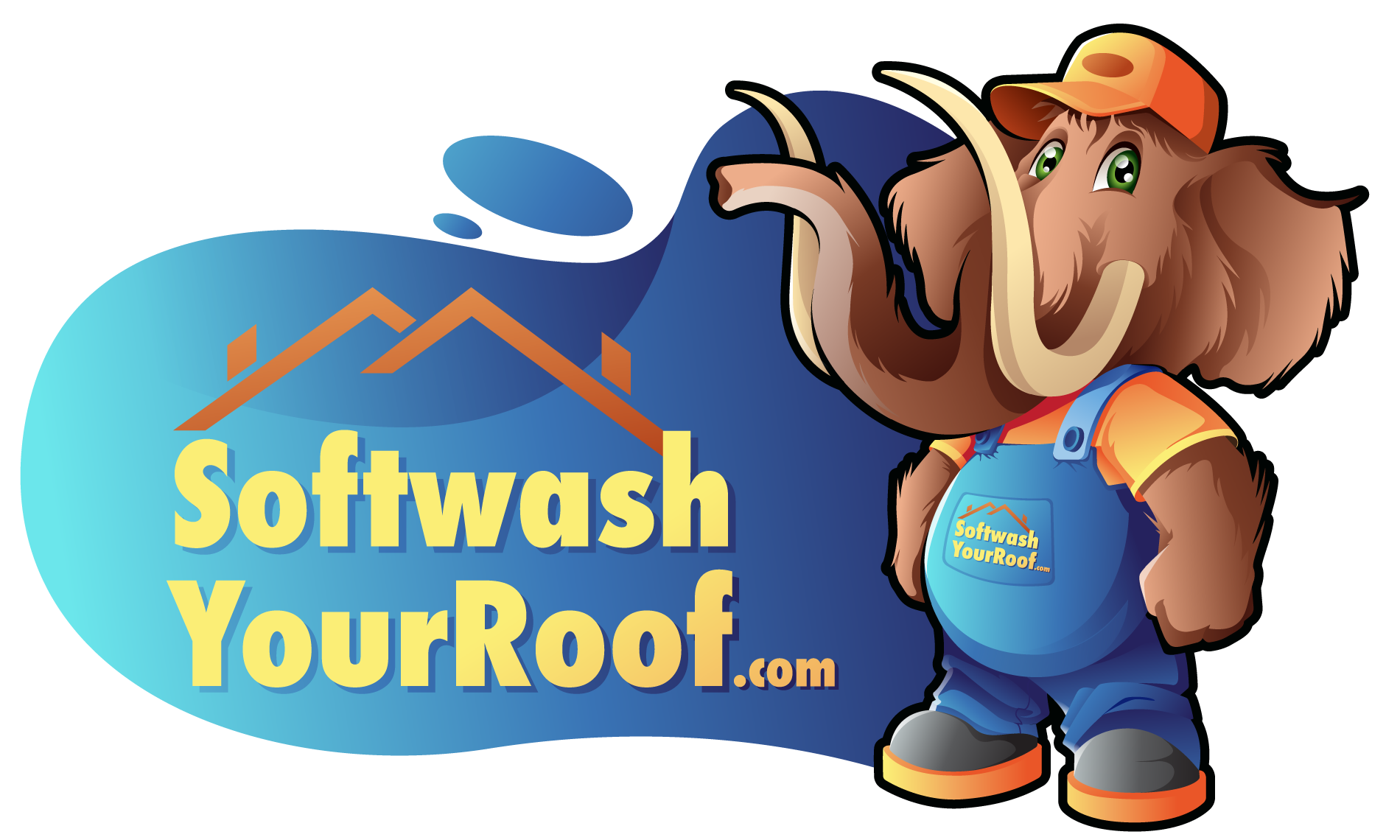
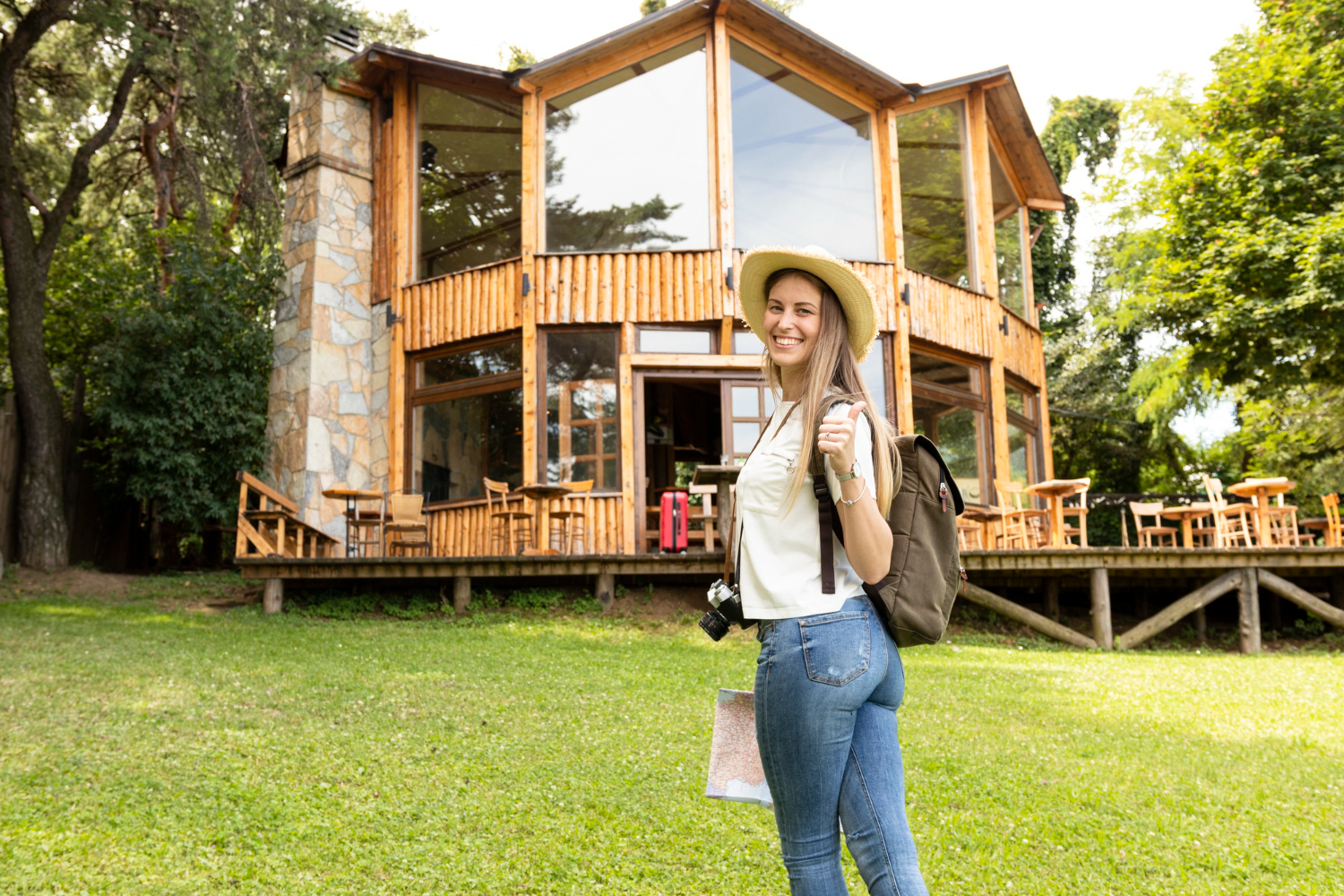
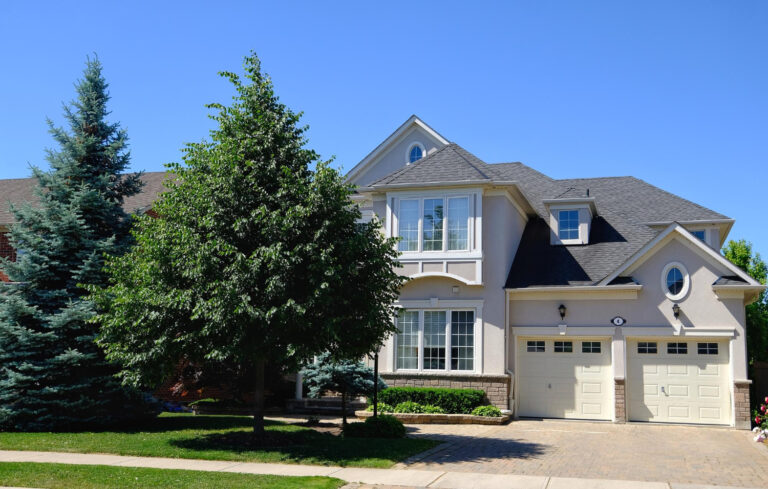
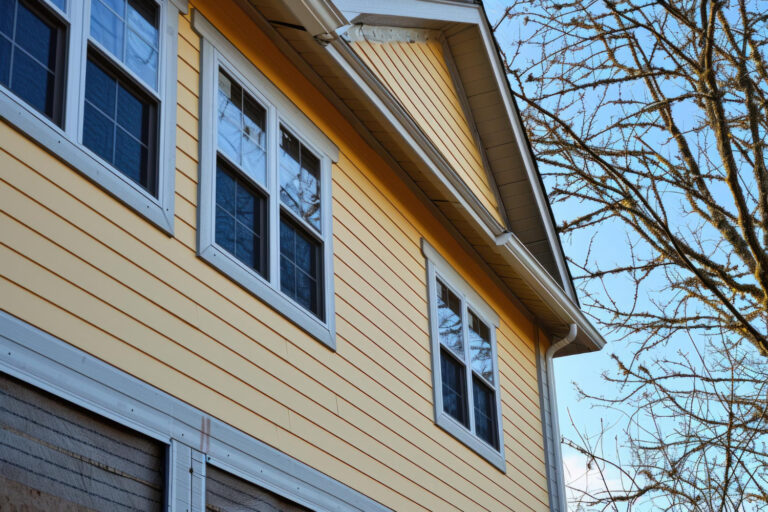
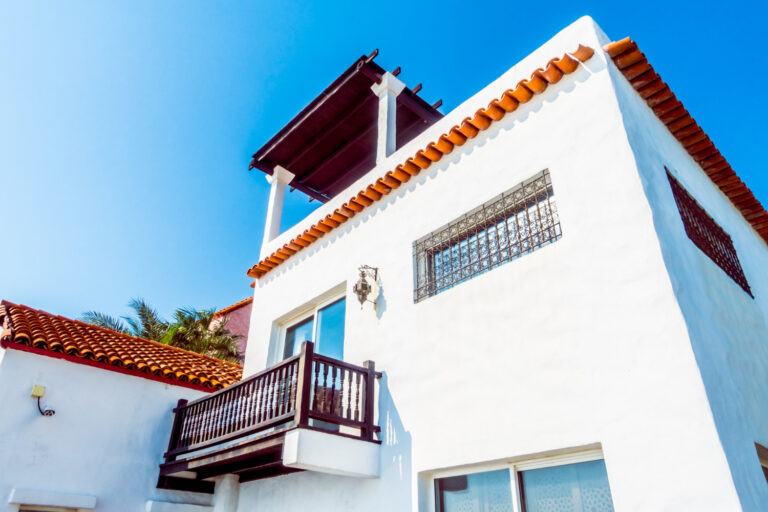
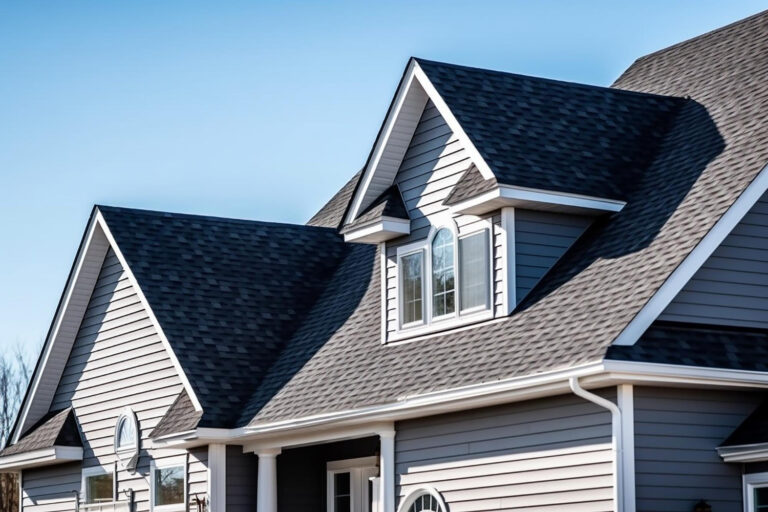
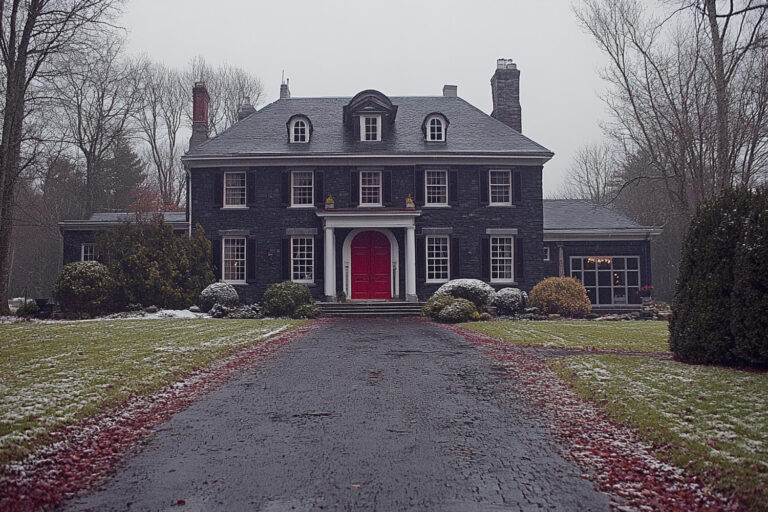
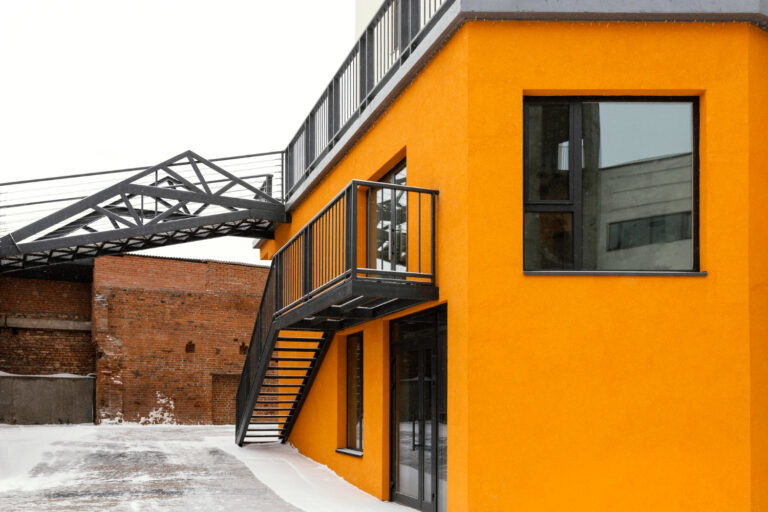

3 Comments
Comments are closed.